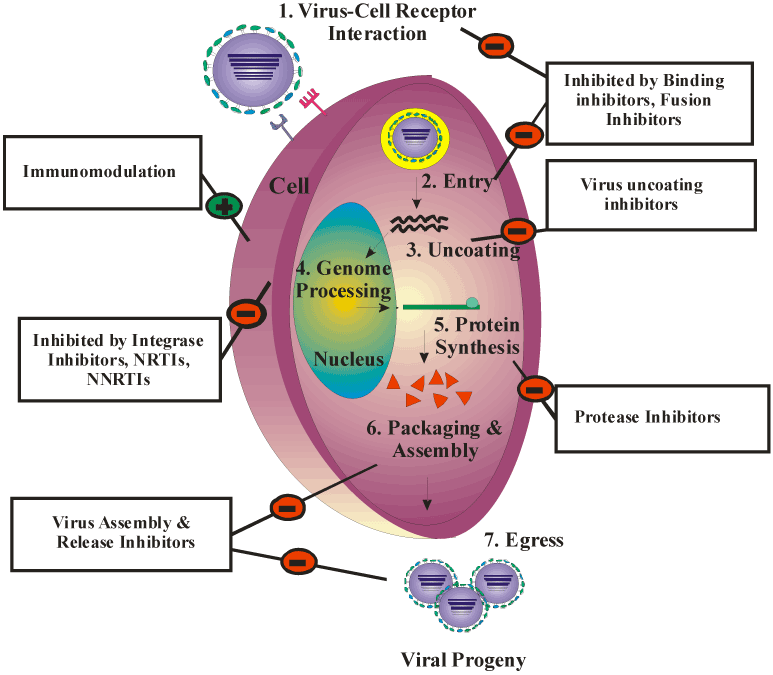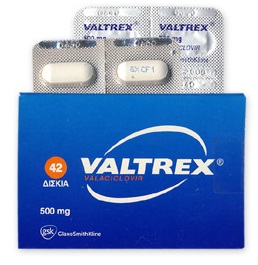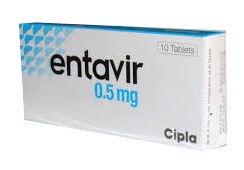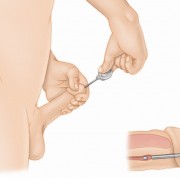Top 10 Antiviral Pills at Canadian Pharmacy
Infections are all around us, and in springtime, it is especially important to give your immune system a boost. Antiviral pills help body to protect itself against hundreds of different viruses and infections being a simple and affordable preventative measure. Find out what the best antiviral pills are, and why it is recommended to choose drugs at Canadian Pharmacy www.mycanadianpharmacyrx.com.
How do antiviral drugs work?
 Just like many other drugs that are used to deal with infectious pathogens, antivirals target certain virus strains and work in different ways. Typically, antiviral medications do not kill viruses, but inhibit their development and reproduction. As far as viruses do not reproduce until they find a host, antiviral drugs are aimed to interfere with the process of infection.
Just like many other drugs that are used to deal with infectious pathogens, antivirals target certain virus strains and work in different ways. Typically, antiviral medications do not kill viruses, but inhibit their development and reproduction. As far as viruses do not reproduce until they find a host, antiviral drugs are aimed to interfere with the process of infection.
Interference can be performed several ways:
- Medications block the virus from host cells so that they can’t release genetic material when reaching the nucleus. Thus, virus’s genetic information can’t get into human cell’s DNA.
- Some specific products target proteins and enzymes used by infected host’s cells: they can’t generate new virus particles and function properly. These drugs should be made with state-of-art technologies so that not to affect metabolism of healthy tissues and cells.
- Other drugs increase the efficiency of host’s immune system.
The principles of work are different, but all antiviral pills are aimed to defend human body against infections and viruses.
Valtrex (Valacyclovir)
 Valtrex (also known as valacyclovir) is the most popular antiviral drug at Canadian pharmacies. It is used to treat various infections, especially the ones that affect skin: herpes, shingles, cold sores, etc. These pills stop virus multiplication and spread to healthy cells. Although Valtrex does not cure illnesses, it accelerates the process of healing, relieves symptoms and discomfort. It can also be used as a preventative measure against herpes since it decreases the risk of its transmission.
Valtrex (also known as valacyclovir) is the most popular antiviral drug at Canadian pharmacies. It is used to treat various infections, especially the ones that affect skin: herpes, shingles, cold sores, etc. These pills stop virus multiplication and spread to healthy cells. Although Valtrex does not cure illnesses, it accelerates the process of healing, relieves symptoms and discomfort. It can also be used as a preventative measure against herpes since it decreases the risk of its transmission.
Valtrex is a generic medication that is offered in Canadian pharmacies under different brand names. It does not require prescription, however, it is highly recommendable to consult to a doctor before taking the pills. Even if you have the same symptoms as people taking this drug, it may not necessarily be suitable for your case. The drug is produced in two forms: 500 mg and 1000 mg (suitable dose is usually prescribed by a doctor). People allergic to valacyclovir and acyclovir should not take it.
As many other medications, Valtrex may cause different side effects, though it happens rarely (in 1% of cases). You should cease the course and visit a doctor, if you experience dizziness, diarrhea, dry mouth, pains in abdomen, headache, nausea, skin reactions, weakness and difficulty with sleep.
Tamiflu (Oseltamivir phosphate)
With the active component called “oseltamivir”, Tamiflu is used to prevent and treat flu and other acute respiratory viral infections. It stops flu by blocking the growth of virus, but does not serve as a flu vaccine. Tamiflu relieves symptoms of influenza: cough, aches, weakness, chills, sore throat, stuff nose, and high temperature, and accelerates recovery by one-two days. It can be used to treat infection during outbreak, and before getting ill.
This antiviral drug can be taken regardless of meal time (during or after eating), and the dose and duration of course depend: ill people have to take it for longer periods.
As for side effects, they do not appear often, but may include:
- Vomiting and nausea;
- Mood changes in children;
- Serious allergic reactions (very rarely).
If a person experiences skin rash, swelling or itching, strong dizziness or problem breathing, he should stop taking the pills and visit a doctor – such reaction is not typical.
Famciclovir (Famvir)
Famciclovir (Famvir) is a drug used to treat viruses that cause herpes, cold sores and shingles. Although you can buy these antiviral pills in Canadian pharmacies without prescription, it is always better to ask your doctor about appropriate dose. Just like most medications, these pills block the reproduction of viruses and shorten recovery period considerably.
Famvir should be taken cautiously by people who are allergic to its components, and is not recommended to nursing and pregnant women. It may cause mild side effects like nausea, fever, headache, diarrhea, itching and weakness.
Acyclovir (Zovirax)
 Acyclovir is produced by different brand names (most often, as Zovirax), and is the most popular drug against cold sores. The drug suppresses development and reproduction of virus effectively. Pills reduce recovery period, relieve pain and itching, especially during the first outbreak of cold sores. Besides, acyclovir is used to treat genital herpes and chickenpox.
Acyclovir is produced by different brand names (most often, as Zovirax), and is the most popular drug against cold sores. The drug suppresses development and reproduction of virus effectively. Pills reduce recovery period, relieve pain and itching, especially during the first outbreak of cold sores. Besides, acyclovir is used to treat genital herpes and chickenpox.
To purchase antiviral pills in Canada Pharmacy, you don’t need prescription. Optimal dose is described in the instruction, and it is not necessary to visit a doctor after and during treatment, and if you don’t have any side effects. People with poorly functioning kidneys are recommended lower doses. Typical side effects include diarrhea, nausea, photosensitivity, skin rash, vomiting and headache. Usually, Acyclovir does not cause allergic reactions in people.
Cidofovir (Vistide)
Cidofovir is a drug used to deal with herpes viruses, CMV and many other viral infections in DNA. How does this antiviral drug work? It halts DNA synthesis and prevents virus from invading cells. Studies show that cidofovir is effective for treating CMV in patients with HIV, especially the ones who are resistant to ganciclovir. It is also used off-label to cure such diseases as condyloma acuminatum, hemorrhagic cystitis caused by infections, HSV disease with resistance to acyclovir, multifocal leukoencephalopathy caused by JC virus and many other DNA viruses.
The main side effect of cidofovir is nephrotoxicity (toxication of kidneys), but increased consumption of water may help with it. Besides, people taking cidofovir are recommended to have their eyes checked, because the drug increases the risk of ocular hypotony and iritis.
Oseltamivir
This drug is not easy to find, but you can ask for it in Canadian pharmacy. It inhibits neuraminidase essential for replication of influenza viruses. Thus, virus cannot release from infected cells. It is used to treat children older than 1 year and adults, and is recommended to take within 2 days of illness onset during 5 days. Oseltamivir pills are absorbed quickly and start helping within one hour. Better hydration makes up for higher biological activity.
The drug is known to cause nausea, vomiting, abdominal pains, insomnia and, not often – Neuropsychiatric side effects. People were reported to have abnormal behavior and hallucination. People with certain gene mutations are resistant to oseltamivir. The medication can be bought in Canadian pharmacies without prescription, but it is highly recommended to consult with a doctor.
Rimantadine (Flumadine)
This is another flu virus inhibitor that is well absorbed in its oral form. It reaches concentration peak within 3-5 hours. This drug inhibits the ion channel function of M2,not letting the virus to uncoat and escape the infected cells. Rimantadine is often prescribed for prevention of flu viruses, however, some people are resistant to this active component. This medication will be good for people suffering from severe side effects after various medications. Rimantadine has fewer and less frequent neurologic adverse effects.
Entecavir (Baraclude)
 This antiviral drug in Canada is considered to be very efficient for treatment of CHB. The medication is absorbed within 1 hour and is 100% biologically active. The principle of work of entecavir is unique: it inhibits 3 functions of HBV DNA. Patients are recommended 0.5 mg and 1 mg doses depending on the disease.
This antiviral drug in Canada is considered to be very efficient for treatment of CHB. The medication is absorbed within 1 hour and is 100% biologically active. The principle of work of entecavir is unique: it inhibits 3 functions of HBV DNA. Patients are recommended 0.5 mg and 1 mg doses depending on the disease.
Adverse effects rarely take place, and are usually quite mild. These include headache, diarrhea, nausea and insomnia. Most people are not resistant to entecavir, since it requires at least 3 mutations. The drug can be sold without prescription in Canadian pharmacy, but it is better to consult with a doctor before starting the course.
Tenofovir (Viread)
Tenofovir is successfully used to treat HBV. Being quickly absorbed, it reaches peak concentration within 1-2 hours. Although its bioavailability is 25% only, it can be boosted by taking high-fat meals. This medication is incorporated into the DNA strand of viruses. Tenofovir is used to treat CHB by suppressing HBV DNA level.
Side effects of tenofovir include dizziness, fatigue, headache, and problems with digestion. Besides, this drug may cause nephritis, Fanconi syndrome, and renal failure. Mutations that may cause tenofovir resistance are not defined. Some viruses tend to be more resistant than wild-type viruses.
Boceprevir (Victrelis)
Is a linear peptidomimetic ketoamide serine protease inhibitor that was recently approved for the treatment of CHC, particularly for genotype 1.194 It is available in oral formulation, and the time to peak concentration after oral administration is 2 hours. Food enhances its absorption. Boceprevir is metabolized primarily in the liver. It has an elimination half-life of 3 hours and is excreted mostly in the feces.194
Boceprevir exerts anti-HCV properties by binding reversibly to the HCV nonstructural 3 protein, ultimately inhibiting viral replication. In a recently conducted phase 3 international randomized placebo-controlled trial that enrolled previously untreated black and nonblack adults with HCV genotype 1 infection (SPRINT-2 [serine protease inhibitor therapy 2] trial), the addition of boceprevir for 22 weeks or 44 weeks to standard therapy (peginterferon-α-2b and ribavirin) resulted in significantly higher SVR rates compared with standard therapy alone for the nonblack cohort (67% and 68% vs 40%, respectively) and the black cohort (42% and 53% vs 23%, respectively).195 The relative increases in SVR rates for the nonblack cohort were 68% and 70%, respectively, compared with the standard therapy.195
The HCV RESPOND-2 (Retreatment with HCV Serine Protease Inhibitor Boceprevir and PegIntron/Rebetol 2) trial evaluated boceprevir for the treatment of patients who had experienced a relapse or who had not achieved SVR to peginterferon-ribavirin treatment.196 In this randomized open-label trial that enrolled 403 patients, the SVR rates were significantly higher for patients who received peginterferon-ribavirin plus boceprevir treatment for 32 weeks (59%) or 44 weeks (66%) compared with standard peginterferon-ribavirin treatment alone (21%).196 In a multivariable stepwise logistic regression analysis, the baseline factors associated with SVR were boceprevir use, previous relapse (compared with previous nonresponder), low viral load at baseline, and absence of cirrhosis.196
Boceprevir (800 mg 3 times daily) was approved by the FDA as the first HCV protease inhibitor for the treatment of CHC, specifically for genotype 1; it should be combined with peginterferon and ribavirin. The most common adverse effects of boceprevir are flulike illness, fatigue, nausea, dysgeusia, and anemia.194 The addition of boceprevir nearly doubled the rate of anemia compared with the use of standard peginterferon and ribavirin therapy, with many patients requiring the use of erythropoietin.










